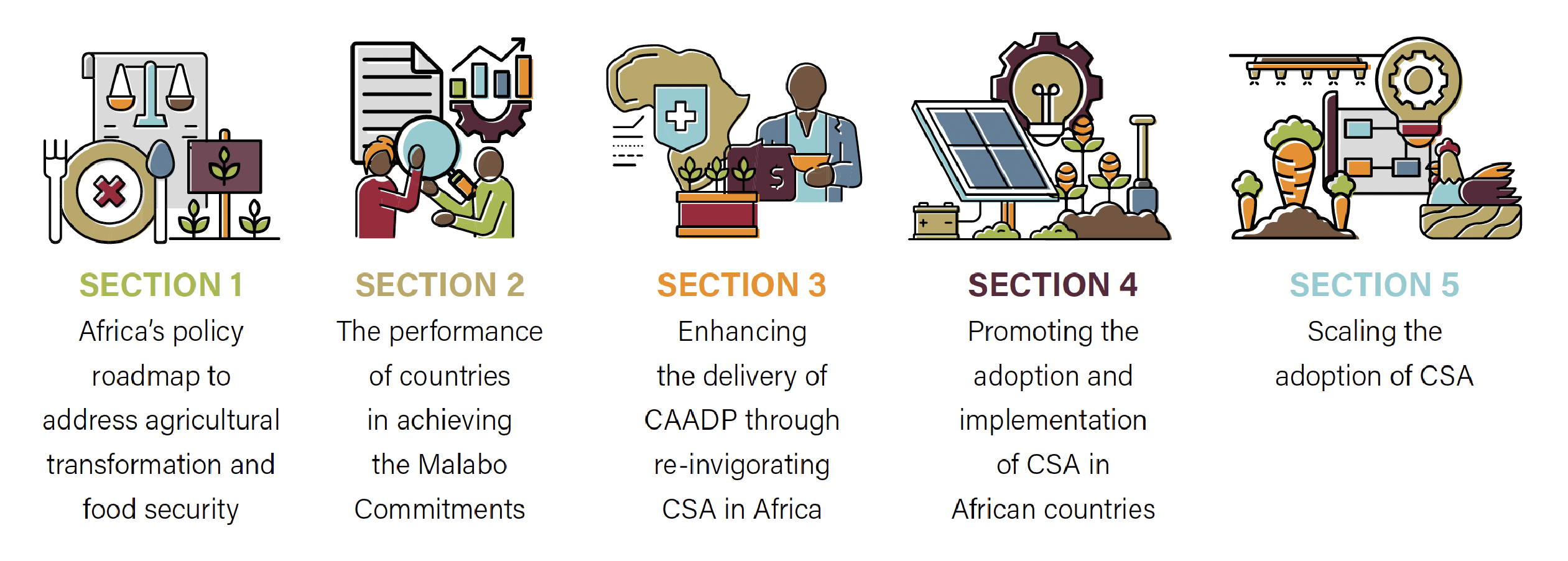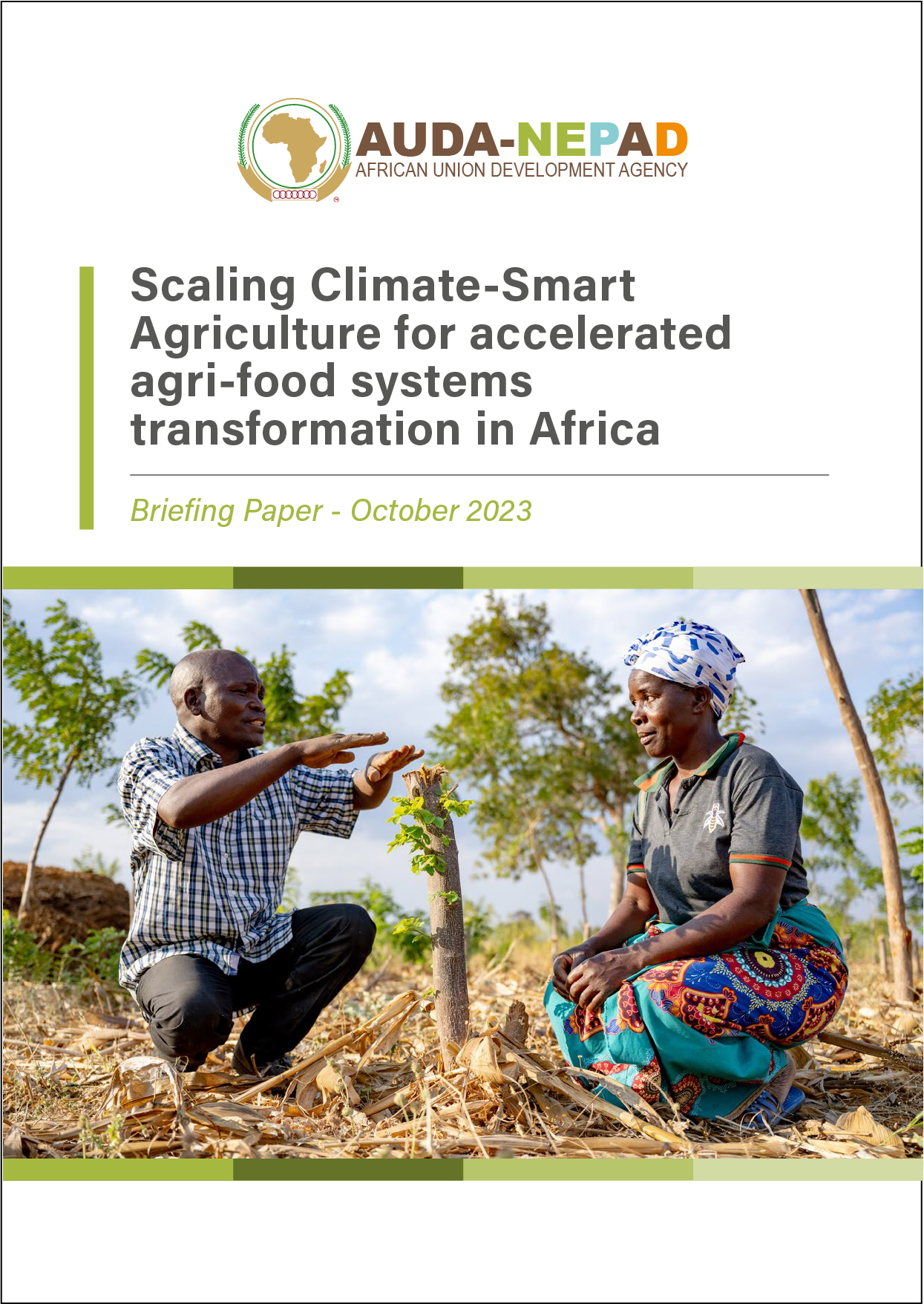The third Biennial Review (BR) of the CAADP, undertaken in 2022, revealed that countries are still falling short on meeting their national commitments towards agricultural transformation and climate resilience. In particular, the BR highlighted poor results in the commitment areas dedicated to reducing hunger, halving poverty, and enhancing the resilience of livelihoods and production systems in the face of climate variability and other related risks. In addition, the overall results of the BR illustrate that the pace at which implementation of Comprehensive Africa Agriculture Development Programme (CAADP) is taking place on the ground is not good enough to lead to the intended food and climate goals of the continent.
Emphasis therefore needs to be placed on tangible actions and intervention areas that can lead to accelerating CAADP implementation and directly support Africa in building its resilient food system. There is a large evidence base, and many country case examples, that highlight the key benefits that climate-smart agricultural (CSA) approaches and innovations can bring to the continent. Through enhanced planning, integration, ownership, implementation and scaling, CSA offers African countries practical solutions to realise the multiple goals set out in countries national agricultural and development plans, the CAADP Agenda, and more broadly within the continent’s Agenda 2063.
CSA practices and technologies can simultaneously increase Africa’s agricultural productivity, promote its climate adaptation, reduce carbon emissions and ultimately enhance the resilience of food systems throughout the continent. These CSA objectives directly feed into Malabo Commitments 3, 4 and 6 which address hunger, poverty, and climate resilience respectively. In addition, increased attention in building systemic resilience and managing climate risks will not only help to address Africa’s existing and underlying vulnerabilities and governance concerns, but also help to implement policy and programmatic changes needed to strengthen the continents holistic approach to food systems to ultimately achieve food and nutrition security (FNS) for all.
However, while CSA has been widely embraced as a guiding framework for adaptation and mitigation action for the agricultural sector, the current pace of transformation is deemed inadequate to meet the food, agricultural, nutrient and climate challenges and needs facing the continent. Despite successful projects and initiatives, the adoption and scaling of CSA technologies and practices across many countries in Africa remains poor.2 As such, this paper calls African governments to support and strengthen actions that prioritise increased productivity, resilience and livelihoods opportunities of smallholder farmers. For example, national and regional investment plans must increasingly incorporate CSA objectives and more action must be taken to expand programmes that have proven impactful and scalable. In addition, resources – both private and public - need to be dedicated specifically to CSA interventions that support implementation and scaling. This includes support for capacity building and training to drive the CSA agenda at multiple scales – including at the level of the farm, landscape, the market, and at the national, regional and global policy levels.
This briefing paper provides practical guidance and key recommendations to member countries, and Africa at large, on implementing a comprehensive CSA approach. It discusses successful country cases and highlights the necessary enabling conditions for effective CSA scaling. It also suggests key areas of focus for countries hoping to adopt, scale and finance these innovative practices. These include activities to strengthen policy coherence, build capacity development and inclusion, enhance partnerships and dialogue, support research and development and market access, and increase financial provisioning. Significant evidence exists to guide countries on this journey and there are many innovative agricultural practices and success stories that need to be scaled across countries and contexts.


